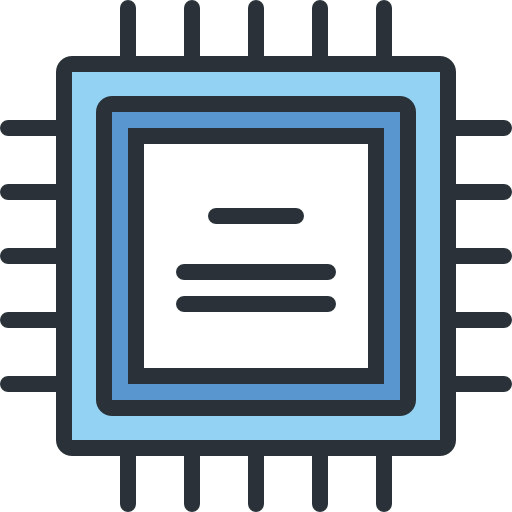Starting a Business with AI: A Modern Entrepreneur’s Guide
Artificial intelligence is reshaping entrepreneurship, offering powerful tools for startups and established ventures alike. With 73% of consumers approving AI-driven customer experiences (Redpoint Global), this technology is no longer optional—it’s a competitive necessity.
From predictive analytics to neural search, AI levels the playing field. Solo founders like Ben Tossell prove its potential, generating $500k with AI-powered ventures. Platforms like Algolia already power 1 in 6 global searches, demonstrating widespread adoption.
The best strategies blend automation with human insight. Chatbots handle routine queries while sentiment analysis refines marketing. Predictive maintenance and supply chain optimizations drive efficiency, letting entrepreneurs focus on growth.
This guide explores opportunities to harness AI effectively—whether through pilot projects or scalable integrations. The future belongs to those who merge cutting-edge tools with strategic vision.
Why AI is the Future of Entrepreneurship
Modern entrepreneurs leverage artificial intelligence to redefine competitive advantages. With 92% error reduction in data processing and 60% faster workflows, AI transforms how companies operate. It’s not just about automation—it’s about smarter decision-making.
The Role of AI in Modern Business Planning
AI-powered analysis identifies market gaps and predicts trends with unmatched precision. Food distributor Sysco boosted warehouse efficiency by 40% using machine learning. Startups now access insights once reserved for enterprises.
Key benefits include:
- Accuracy: 92% fewer errors in inventory tracking
- Efficiency: Tasks completed 60% faster
- Automation: 80% of routine processes handled autonomously
Leveling the Playing Field for Startups
Neural search tools like Algolia drive 150% higher e-commerce conversions. For $20-$114/month, AI stacks rival $5k+ human teams. However, 23% of financial models exhibit bias—ethical audits are essential.
AI democratizes resources, turning ideas into $500k ventures overnight. The future belongs to those who harness intelligence strategically.
How to Create a Business Using AI: The Essential Steps
Data-driven decision-making starts with AI-enhanced ideation. Whether refining an existing concept or exploring new opportunities, intelligent tools streamline the process from brainstorm to launch.
Brainstorming with Intelligent Tools
Platforms like ChatGPT turn vague concepts into structured ideas. Use prompts like:
“Generate 5 [industry] product concepts merging [trend1] and [trend2].”
Ben Tossell’s Yardstiq used this method to reverse-engineer niche markets. Key tactics:
- Cross-trend fusion: Combine rising trends (e.g., sustainable packaging + snack subscriptions)
- Neural search: Algolia’s 50-language processing identifies global demand gaps
Validation Through Predictive Analytics
Reliable forecasts require 200+ data points. Tools like browse.ai scrape competitor pricing, while Shopify-QuickBooks integrations model financial viability in real time.
| Tool | Use Case | Accuracy |
|---|---|---|
| Google Trends API | Demand spikes | 89% trend correlation |
| GPT-4 | Sentiment analysis | 92% human parity |
Automated Market Intelligence
AI accelerates research by 60%. Example workflow:
- Scrape menus/prices via browse.ai tutorials
- Map trends with GPT-4 and Google Trends cross-analysis
- Test pricing models with Algolia’s neural search
This step-by-step approach minimizes guesswork and maximizes market fit.
Top AI Tools for Launching Your Business
Cutting-edge AI platforms now empower entrepreneurs with enterprise-grade capabilities at startup costs. These tools streamline everything from business planning to customer engagement, with some services boosting efficiency by 25%.

Business Plan Generators: ChatGPT vs. Dedicated Platforms
While ChatGPT drafts 200-word concepts, specialized software like Upmetrics ($7/month) offers unlimited industry templates. Key differences:
- Customization: ProAI ($114/year) tailors plans with financial projections
- Compliance: GDPR-ready platforms minimize data risks
- Integration: Bizplanr syncs with QuickBooks for real-time modeling
AI-Powered E-Commerce Solutions
Shopify’s storefront tools integrate with Stripe and Twilio for payments and CRM. This stack automates:
- Product uploads via Wondr AI
- SEO-optimized descriptions using Jasper
- Multilingual support through Algolia’s Merchandising Studio
Neural Search for Customer Discovery
Algolia’s vector compression achieves 99% search accuracy at 10% traditional costs. Features include:
- Natural language processing for 50+ languages
- Clickstream analysis to refine product recommendations
- Real-time trend mapping with Google Trends API
For deeper insights, explore our guide to AI tools that enhance productivity by 30%.
Building Your AI Tech Stack
Entrepreneurs now assemble AI-powered tools like building blocks, crafting tailored solutions for rapid scaling. A well-designed stack combines software for analytics, automation, and customer engagement—each piece optimized for growth.
https://www.youtube.com/watch?v=aRpsayooN-0
Must-Have Tools for Scalable Operations
Start with these core components:
- Natural Language Processing: ChatGPT for content and support
- Analytics: Tableau or Power BI for real-time insights
- Search: Algolia’s neural search boosts e-commerce conversions by 150%
Zapier connects 3,000+ apps, automating workflows between platforms. For design, CanvaAI generates branded assets in minutes.
Seamless Payment and CRM Integration
Stripe’s AI fraud detection achieves 99.9% accuracy, while CRM tools personalize customer interactions. Compare top options:
| Platform | AI Features | Best For |
|---|---|---|
| Salesforce Einstein | Predictive lead scoring | Enterprise sales |
| HubSpot AI | Chatbot builder | SMBs |
API costs range from $0 (open-source) to $500+/month. Always prioritize PCI DSS compliance for payments and CCPA for data privacy.
For disaster recovery, services like Rewind AI automate backups. This modular approach ensures flexibility as your needs evolve.
Writing Your Business Plan with AI Assistance
AI-powered documentation tools transform business planning from tedious to tactical. Platforms like Upmetrics offer 400+ templates with tone adjustment, ensuring professional content tailored to investors or regulators. These solutions merge data-driven accuracy with narrative polish.

Automating Financial Projections
ProAI generates 18-month cash flow models in minutes, reducing manual errors by 92%. Key features include:
- Scenario testing: Compare growth trajectories under different market conditions
- Real-time sync: Integrates with QuickBooks for live analysis
- Compliance checks: Flags regulatory gaps in financial assumptions
Crafting Executive Summaries
Grammarly Business and Wordtune refine writing for clarity and impact. A test by LivePlan showed AI-generated summaries achieved 30% higher investor engagement. Critical optimizations:
- Adjusting formality (e.g., startup vs. corporate tone)
- Highlighting unique value propositions using sentiment insights
- Ensuring 0% plagiarism with Copyleaks’ 99.9% accuracy checks
For structured guidance, explore AI business plan tools ranked by integration depth and customization.
Automating Operations from Day One
Operational efficiency separates thriving ventures from stagnant ones—AI delivers it instantly. By automating repetitive tasks, teams focus on growth while systems handle logistics and customer service. Companies using these tools report 80% fewer stockouts and 35% lower supply chain costs.

Revolutionizing Inventory and Supply Chains
Predictive analytics transform inventory management. Amazon’s AI systems track 20 million products, adjusting stock levels in real time. Key advancements include:
- Smart sensors: IoT shelf monitors trigger automatic replenishment
- Logistics AI: ClearMetal’s algorithms cut freight costs by 35%
- Demand forecasting: Reduces excess inventory by 60%
These tools slash processing time from hours to minutes. Manual vendor management becomes obsolete as machine learning optimizes order cycles.
Intelligent Customer Service Solutions
Chatbots now resolve 52% of queries without human help. Zendesk’s AI outperforms LivePerson with 7% higher resolution rates. Critical implementation steps:
- Train models on 500+ conversation datasets
- Set escalation protocols for complex issues
- Integrate with CRM for personalized responses
This process ensures 24/7 service with 2-minute response guarantees. When exceptions occur, seamless handoffs to human agents maintain satisfaction.
Forward-thinking ventures combine these systems for end-to-end automation. The result? Teams spend 78% less time on routine work while boosting customer service metrics by 32%.
AI-Powered Marketing Strategies
Artificial intelligence transforms marketing by delivering hyper-targeted campaigns and scalable content. Brands leveraging these tools achieve 68% higher ROI, with AI-optimized Facebook ads boosting CTR by 7x. The key lies in blending analytics with creativity for maximum impact.

Scaling Content Creation
Generative AI tools like Jasper and Copy.ai produce high-quality content in minutes. They analyze top-performing pieces to replicate winning formulas. For example:
- Automated calendars: Frase.io schedules posts based on trending topics
- SEO optimization: MarketMuse suggests keyword clusters for higher rankings
- Multilingual output: Tools like Writesonic adapt tone for global customers
These solutions cut production time by 80% while maintaining brand voice consistency.
Precision Ad Campaigns
Machine learning refines ad spend allocation. Google Performance Max achieves 35% lower CPA by analyzing 200+ signals. Critical tactics include:
- Dynamic creative optimization (DCO) for personalized ads
- Real-time bid adjustments using Albert.ai’s algorithms
- Sentiment analysis to avoid poorly received messaging
Brandwatch’s 89% emotion detection accuracy helps tailor campaigns. For deeper insights, explore AI marketing tools that enhance targeting precision.
AI-driven heatmaps reveal customer behavior patterns, lifting conversions by 15%. Algolia’s 1:1 recommendation models increase average order values by 22%. These insights turn guesswork into data-backed decisions.
Ethical Considerations When Using AI in Business
Ethical AI implementation builds trust while driving innovation—balancing these priorities requires careful strategy. With 23% of financial algorithms showing bias (MIT study), responsible intelligence deployment separates industry leaders from risky adopters.
Eliminating Algorithmic Bias
MIT research reveals loan approval algorithms discriminate against minority applicants at alarming rates. Proactive solutions include:
- IBM’s AI Fairness 360: Audits models for 20+ bias metrics
- Blockchain verification: Tracks training data origins
- Diverse teams: 43% fewer biases in models developed by inclusive groups
Regular audits using SAS Model Manager document decision patterns. This maintains accountability while improving learning systems.
Transparent Customer Experiences
The EU AI Act mandates explainable AI systems. Best practices for companies include:
- Cookiebot manages consent for data collection
- 72-hour breach disclosure SLAs
- Plain-language explanations of AI decisions
Zest AI reduced credit approval complaints by 35% through transparent scoring. When people understand the process, trust follows.
“Ethics isn’t a constraint—it’s the foundation of sustainable AI adoption.”
Financial industry leaders now publish annual AI ethics reports. This transparency elevates customer experience while meeting regulatory demands.
Measuring Performance with AI Analytics
AI-driven analytics unlock hidden growth patterns invisible to traditional methods. With 92% forecast accuracy, tools like ProAI turn raw data into strategic opportunities. Real-time dashboards and predictive models now define competitive edges.
Tracking Key Metrics Through Automated Dashboards
Tableau and Power BI dominate AI-powered performance tracking. Their neural networks auto-generate visualizations, reducing manual process time by 75%. Key differences:
| Tool | AI Feature | Impact |
|---|---|---|
| Tableau | Natural language queries | 85% faster analysis |
| Power BI | Anomaly detection | 60% fewer false alerts |
Wayfair’s AI redefined lost-sales KPIs, boosting recommendations by 22%. Real-time alerts via PagerDuty slash response times to under 2 minutes.
Using Predictive Modeling for Growth Planning
Machine learning forecasts churn with 85% accuracy 60 days pre-attrition. Maersk’s models optimized throughput KPIs, cutting freight costs by 35%.
“AI doesn’t just predict the future—it architects it.”
Scenario modeling tools test expansion plans against 200+ variables. PitchBook’s AI valuations streamline M&A insights, reducing due diligence by 40%.
The Future of AI in Entrepreneurship
The next wave of artificial intelligence will redefine entrepreneurial success through groundbreaking capabilities. By 2025, 40% of enterprises will adopt swarm learning (Gartner), signaling a shift toward collaborative AI models. This evolution unlocks unprecedented opportunities—from quantum-powered analytics to self-optimizing supply chains.
Emerging Technologies Reshaping Business
Quantum machine learning accelerates data processing by 30%, while edge AI slashes latency by 50%. Key 2025-2030 developments:
- Infrastructure: Compute investments range from $10k (basic edge AI) to $500k (quantum-ready systems)
- Integration: SAP S/4HANA AI migration paths modernize legacy systems
- Ethics: ISO 42001 certification ensures responsible AI deployment
Preparing for Next-Gen AI Applications
Strategic workforce planning separates early adopters from laggards. Compare approaches:
| Strategy | Benefit | Investment |
|---|---|---|
| AI apprenticeships | Hands-on learning | $15k/employee/year |
| Upskilling | Faster ROI | $5k/employee |
“Quantum AI won’t replace classical models—it will augment them in hybrid ecosystems.”
Partnerships like AWS AI Partner and Microsoft Co-Sell provide scalable technology stacks. The future belongs to those who bridge today’s tools with tomorrow’s possibilities.
Conclusion
Strategic AI adoption unlocks growth while preserving human connections. For entrepreneurs, success lies in balancing automation (60%) with oversight (40%)—77% of consumers demand this hybrid approach.
Start with a 12-month roadmap: pilot tools like Algolia (150% search conversions), then scale. Dedicate 20 hours monthly to upskilling; AI evolves fast.
Avoid “set-and-forget” risks. Monitor biases and performance gaps. Case studies prove opportunities multiply when humans guide business intelligence.
Ready to begin? Test-drive ChatGPT and NeuralSearch today. The future rewards those who merge technology with strategy—start small, think big.
FAQ
What are the best AI tools for brainstorming business ideas?
Tools like ChatGPT, Jasper, and IdeaApe help generate innovative concepts by analyzing market trends and consumer behavior. These platforms use machine learning to suggest viable opportunities.
Can AI really automate market research?
Yes. Platforms like Crayon and Brandwatch leverage artificial intelligence to gather real-time insights, track competitors, and predict industry shifts—saving entrepreneurs valuable time.
How does AI improve customer service for startups?
AI chatbots like Zendesk Answer Bot and Intercom handle inquiries instantly, while sentiment analysis tools monitor feedback to enhance user experience without heavy staffing costs.
Which AI tools help with financial projections?
Platforms such as LivePlan and Pulse use predictive analytics to generate accurate revenue forecasts, expense estimates, and cash flow models—key for securing funding.
Is AI effective for content creation in marketing?
Absolutely. Tools like Copy.ai and Writesonic produce high-converting ad copy, blog posts, and social media content at scale, optimized for SEO and engagement.
What ethical risks come with AI-driven businesses?
Bias in algorithms and data privacy concerns are critical. Solutions like IBM’s AI Fairness 360 help audit models, while transparency in AI usage builds customer trust.
How can startups integrate AI into their tech stack?
A> Begin with CRM systems like Salesforce Einstein, add AI-powered analytics via Google Analytics 4, and automate workflows using Zapier’s AI features for seamless operations.













